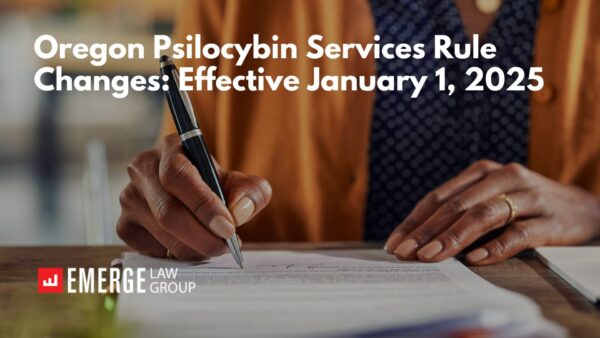January is a time for reflecting on the past year, resolutions for the new year, and overpriced outdoorsy puffy coats. It also means a fresh set of rules from your favorite regulatory bodies – OLCC, ODA, and OHA. Our first post in the “New Year, New Rules” series covers some of the changes to OLCC rules, which technically took effect on December 28, 2018. Here’s a list of the most significant changes to the rules (for a comprehensive set of the current rules, click here; for a track changes version of the new and amended rules, click here).
– Concentrates and extracts that contain “added substances” – including flavors and non-marijuana derived terpenes – are now considered “Cannabinoid Products,” which may affect how you should label and test your product.
– “Cannabinoid tincture” has a revised definition to include (non-potable) glycerin, plant-based oil, or concentrated syrup-based products in addition to alcohol-based tinctures.
– All managers of a manager-managed LLC OLCC license applicant must also be listed as applicants.
– Renewal license applicants will now have to submit their fees and application materials within a specified time period or risk denial.
– Any interest in a license that has not been pre-approved by OLCC may result in the denial of an initial or renewal application.
– All licensees may now provide their employees with trade samples, so long as the transfers are tracked in Metrc.
– Retailers no longer have to store immature plants in a safe or vault during non-operating hours.
– New rules now apply to marijuana waste, including camera coverage in all areas where waste is stored, destroyed, or rendered unusable and documenting reasons for designating certain types of marijuana waste.
– Designated canopy areas that are not quadrilateral in shape (four sides), must be surveyed by a professional land surveyor that shows the total canopy is within the licensed limits.
– Usable marijuana retail limits for valid medical card holders (which the OLCC limited to one ounce per day last year), has been increased to 8 ounces per day for a total of no more than 32 ounces in a month.
– Retailers with residential delivery certification may now deliver to valid medical card holders who live outside the retailer’s city or county even if the city or county opted out of the state’s legal marijuana regime.
– Extract processors have new licensure requirements, including providing proof of a Certificate of Occupancy and extraction equipment inspection.
– Marijuana Worker Permit holders are now subject to the same disciplinary actions as licensees for rule violations.
– OLCC may now restrict licenses to certain activities instead of cancelling, suspending, denying, or levying a fine against a license.
If you have any questions about the rule changes, or OLCC compliance in general, we’re here to help. Please ask to speak to one of our regulatory specialists. And stay tuned for posts about testing rule changes from the Oregon Health Authority (OHA) and hemp rule changes from the Oregon Department of Agriculture (ODA).





